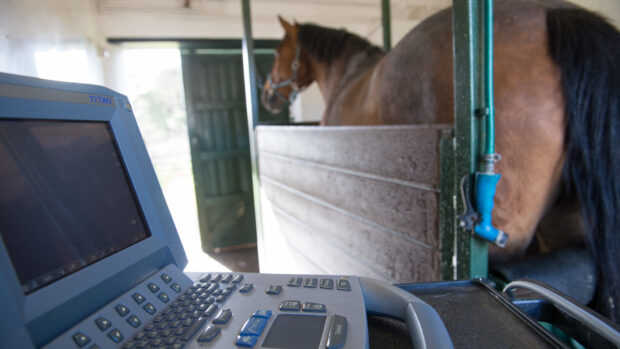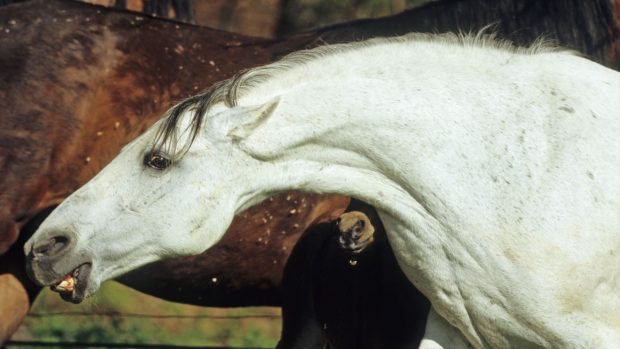Competition mares in work may have more trouble conceiving than those which receive little or no regular exercise, according to a new study.
Researchers at Clemson University and the University of Florida in America looked at the effect of exercise on embryo transfer and a mare’s reproductive health by measuring the hormone cortisol — known to suppress the reproductive cycle — in the blood, and embryo number and quality.
Researchers divided the mares into groups doing no exercise, partial exercise and full exercise.
The mares in the partial-exercise group undertook 30min activity a day in a horse-walker in the lead-up to ovulation and were rested for seven days after an egg was released.
The full-exercise mares undertook 30min of the same work a day throughout their entire reproductive cycle.
The mares being exercised had higher cortisol concentrations in their blood, suggesting a reduced reproductive capability.
There was also evidence that embryo recovery rates were reduced in exercised horses, but there was no significant difference between the partial and full-exercise groups.
Mares undergoing partial exercise had the lowest embryo quality score.
Christopher Mortenson, co-author of the study, said: “This led us to conclude that exercise was just as detrimental, if not more so, in the time period just prior to and during fertilisation.”
But breeding expert Dr Jonathan Pycock cautioned: “The study raises some interesting points, but in practice there are a lot of variables to consider.
“In my experience most sport horses benefit from being in regular exercise prior to breeding.”
This news story was first published in the current issue of H&H (4 January 2013)




